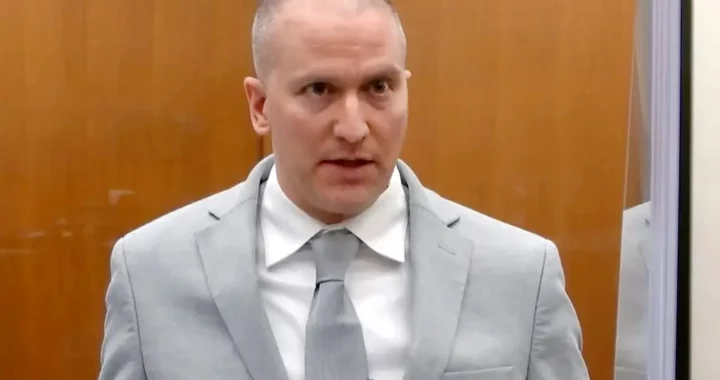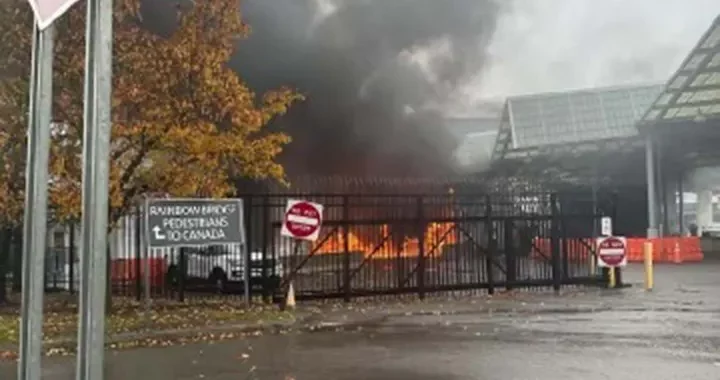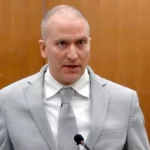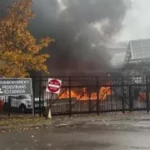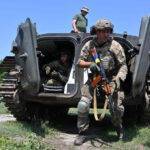Campus Divides: Students Navigate Israel-Hamas Tensions and Free Speech
Challenges of Free Expression and Campus Safety Amid Rising Israel-Hamas Conflict
Amidst the Israel-Hamas war, college campuses across the United States have become the backdrop for heated protests, raising concerns about the safety of students and the balance between free speech and the need to maintain a secure campus environment.
Tensions Flare at Columbia University

One glaring example unfolded at Columbia University, where two groups of students passionately confronted each other in dueling pro-Israel and pro-Palestinian demonstrations. In a proactive safety measure, university officials temporarily restricted public access to the New York City campus.
Pro-Palestinian supporters, many donning face masks to conceal their identities, gathered near a library with signs bearing slogans like “Free Palestine” and “To Exist is to Resist.” Just a stone’s throw away, students backing Israel silently displayed posters featuring the faces of Israeli hostages taken by Hamas.
This tense standoff is just a microcosm of the broader conflict in the Middle East, with the recent Hamas attack on Israel prompting retaliatory actions. The Israeli death toll was soaring, while Gaza authorities reported a substantial number of Palestinian casualties.
However, the college campus should be a place for the free exchange of ideas, and the Israel-Hamas war has created a challenging environment for students with differing viewpoints.
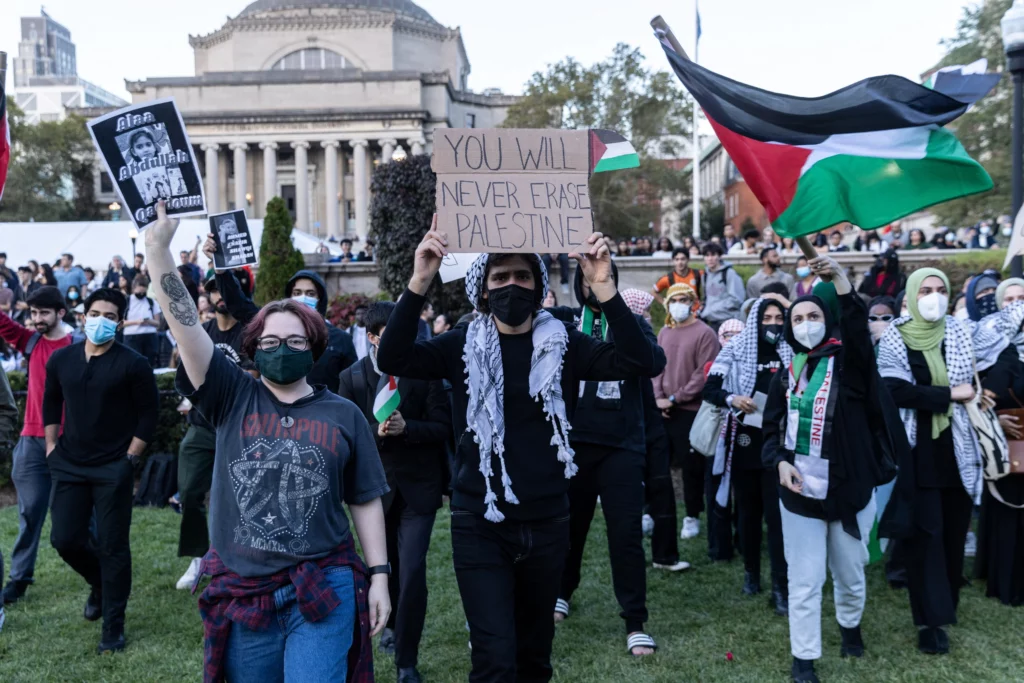
The Growing Campus Climate of Fear
At various colleges, statements from student groups supporting Palestinians have sparked outrage and fear among Jewish students. In some cases, these statements have drawn criticism from public officials and corporations. Reports of harassment and assaults on both pro-Israel and pro-Palestinian students have deepened the distress and left students from all backgrounds on high alert.
“Jewish students are afraid,” said David Hidary, a 20-year-old physics major at Columbia University, who joined the protest with an Israeli flag draped over his shoulders.
These tensions have occasionally boiled over, leading to confrontations between opposing student groups. Some counter-protesters at Columbia shouted angrily at the pro-Palestinian demonstrators, and during a moment of silence for Palestinian victims, an opposing protester disrupted the event.
Many masked speakers at the pro-Palestine rally chose to remain anonymous, expressing concerns about their safety on campus. They faulted the university for not providing more support to Palestinian students and the people of Gaza.
With the situation in the Middle East escalating, college administrators are grappling with the challenge of ensuring campus security while denouncing violence. Striking the right balance in this supercharged political and historical dispute that affects Jewish and Palestinian students personally is no easy task.
‘Day of Resistance’ Called by Students for Justice in Palestine (SJP)
The tensions aren’t limited to one campus; they are erupting nationwide. The national group Students for Justice in Palestine (SJP) declared a “day of resistance,” which saw demonstrations by its 200 chapters at colleges across North America. SJP advocates for an independent Palestine and has stated that it promotes “an agenda grounded in freedom, solidarity, equality, safety, and historical justice.”
Their declaration of the October 7th attack by Hamas as “a historic win for the Palestinian resistance” has drawn criticism. The Anti-Defamation League (ADL), a nonprofit organization fighting antisemitism, wrote to college presidents, warning that Students for Justice in Palestine was “condoning terrorism by Hamas by repackaging it as justified acts of ‘resistance'” with its planned day of action.
The University of Arizona’s Tucson chapter of SJP canceled a protest due to safety concerns after the school’s president denounced the national group’s statement “endorsing the actions of Hamas” as “antithetical to our university’s values.”
However, other SJP chapters, such as the one at the University of California Los Angeles, held a march for Palestine, despite reports of harassment and assaults on their student members.
At Georgetown University in Washington, D.C., the SJP chapter chose to host a vigil but declined media access due to “increased harassment and threats of violence against Palestinian, Arab, Muslim, and anti-Zionist students across the country.”
In the midst of these tensions and protests, college campuses remain a battleground for differing ideologies, testing the boundaries of free speech, safety concerns, and the need for open dialogue on the Israel-Hamas war and its broader implications. Balancing these complex issues is a challenge that colleges and universities are grappling with as they seek to maintain an environment where all voices can be heard.
By: M Z Hossain, Editor Sky Buzz Feed

